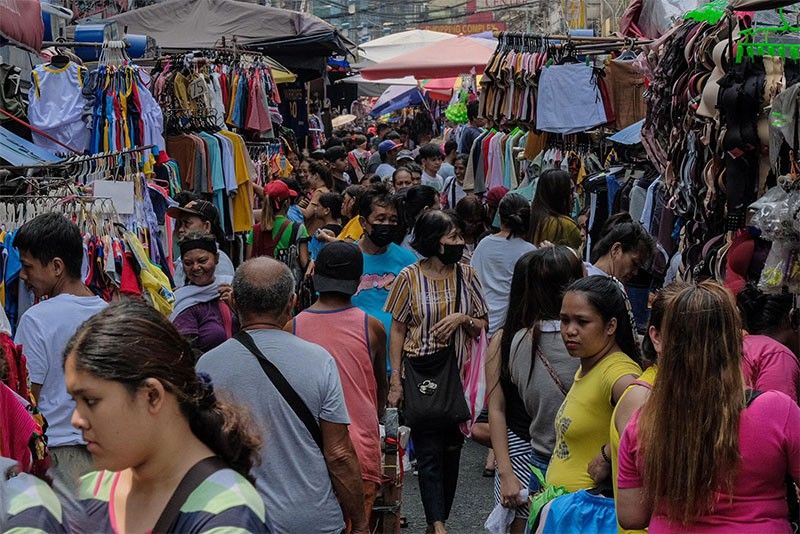Philippines lags behind regional peers in human capital development

MANILA, Philippines — Lagging behind its peers in the region in terms of human capital indicators, the Philippines has a 20- to 25-year window to develop its human capital to take advantage of the demographic shift, according to the World Bank.
In a report titled “The Philippines Human Capital Review: Investing in the Early Years to Boost Human Potential,” the World Bank said the Philippines is on the cusp of attaining upper middle-income country status by 2026, given the Filipinos’ rising income.
Despite this, Ndiame Diop, World Bank country director for Brunei, Malaysia, the Philippines and Thailand, said the country is still lagging behind its neighbors in terms of human capital indicators, with its human capital index (HCI) estimated at 0.52 – indicating that a child born in 2020 can achieve only about half of productive potential by the age of 18.
The Philippines’ HCI is well below those of neighboring upper middle-income countries such as Malaysia and Thailand, which both have a 0.61 HCI.
Diop said the Philippines’ HCI is also lower than that of lower middle-income peers such as Indonesia’s 0.54 and Vietnam’s 0.69.
As the Philippines is aiming to achieve upper middle-income status and is one of the few young countries in an aging region, the World Bank sees it as urgent for the country to invest in human capital, which encompasses health, knowledge, skills and experiences, to achieve higher productivity, increased income, improved living standards and economic growth.
“The Philippines currently stands at a pivotal juncture with a unique demographic opportunity. The country has a 20- to 25-year window to harness the benefits of its changing population structure,” World Bank economist Toni Joe Lebbos said.
As the country will soon have a larger working age population relative to its dependents, he said this period is critical in addressing social and economic challenges and reducing disparities to maximize the working population’s productivity.
By investing in education, health care and jobs now, Lebbos said the demographic shift can provide a boost to the country’s economic growth.
“This opportunity won’t last forever. And not taking action now could mean missing out on a lot of potential,” Lebbos added.
While challenges in developing human potential affect all life stages, the report found these to be notable in the early years – between the ages of 0 and 10 years old – with one out of four children in the Philippines stunted. It also said only 40 percent of three- to four-year-olds are enrolled in preschools and the country has a 90 percent learning poverty rate among school children.
To leverage its demographic window, Lebbos said the World Bank recommends investing in the early years in a holistic manner immediately.
“It’s really important to invest now so that you have these younger generation going into the labor market with better capacity and better skills to be able to join the workforce in an effective manner,” he said.
For his part, National Economic and Development Authority (NEDA) Secretary Arsenio Balisacan said the demographic transition could be a boon to the Philippine economy, noting the country may see as much as one percentage point boost to its gross domestic product growth per year in the next two to three decades.
He told reporters that while the government has been addressing education and health issues, there is a need to view human capital from a life cycle perspective to address the issues.
“In our 4Ps (Pantawid Pamilyang Pilipino Program), for example, we only cover children or families who have children in elementary to high school. But what about those who are not in school yet? So, it’s very important that you are able to have a program that covers that whole cycle,” he said.
Last year, the NEDA board chaired by President Marcos approved a social protection floor (SPF), which refers to nationally defined sets of basic social security guarantees that aim to prevent or alleviate poverty, vulnerability and social exclusion.
Balisacan said the SPF has a whole-of-life-cycle way of providing health and social services for the people.
- Latest
- Trending



























